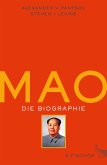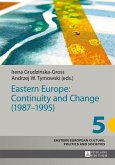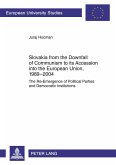Alexander Solzhenitsyn was one of the Cold War`s most iconic writers. This book offers an in-depth analysis of his reception in the US, UK, and Germany before and after 1991. Elisa Kriza skillfully explores how Solzhenitsyn`s work can be understood with the paradigm of witness literature and uncovers the dynamics behind the politicized reception of his writing.
From the mid-1980s onwards, Solzhenitsyn`s popularity dwindled was this for ideological reasons? What about the rumors linking him with Russian nationalism? This study does not shy away from stretching beyond anti-communism and touching more contentious subjects such as anti-feminism, anti-Semitism, and revisionism in Solzhenitsyn`s work and reception.
Bringing Solzhenitsyn back from his `critical exile` and redefining his work as memory culture, Kriza`s book is a crucial scholarly intervention, unveiling the mechanism that can transform a controversial figure into a moral icon.
Hinweis: Dieser Artikel kann nur an eine deutsche Lieferadresse ausgeliefert werden.
From the mid-1980s onwards, Solzhenitsyn`s popularity dwindled was this for ideological reasons? What about the rumors linking him with Russian nationalism? This study does not shy away from stretching beyond anti-communism and touching more contentious subjects such as anti-feminism, anti-Semitism, and revisionism in Solzhenitsyn`s work and reception.
Bringing Solzhenitsyn back from his `critical exile` and redefining his work as memory culture, Kriza`s book is a crucial scholarly intervention, unveiling the mechanism that can transform a controversial figure into a moral icon.
Hinweis: Dieser Artikel kann nur an eine deutsche Lieferadresse ausgeliefert werden.
"The merits of this book are several and decisive. First of all it shows a solid and comprehensive grasp of Solzhenitsyn`s work in its entirety and the huge body of criticism it has fostered, from books to articles and from political statements to reviews and debates in various media. Second, the ambition of making a reception study that redefines the field and, at the same time, exemplifies it through an investigation of a vast and complex material is innovative and represents a real scholarly achievement. Third, the comparative and interdisciplinary approach is organically embedded in the chapters in their detailed readings, and documents Elisa Kriza`s capacity to master a differentiated use of the vast material."-Svend-Erik Larsen, Professor of Comparative Literature, Aarhus University








